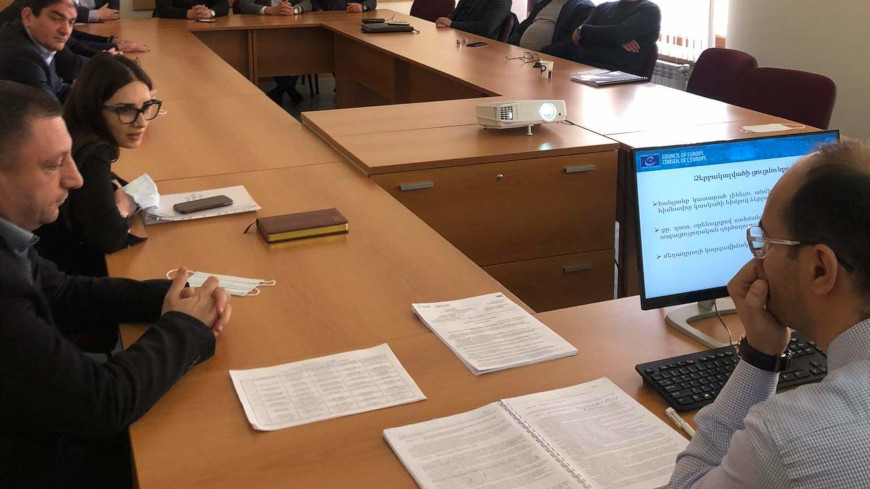Four one-day seminars on “Selected issues of Criminal Procedure Code (CPC) of Armenia” were organised for 62 judges of Armenia in March and April 2022 in the Justice Academy in Yerevan.
The judges improved their knowledge and skills on topics such as evidence, proving, arrest and measures of restraint. The scope of measures of restraint was expanded, new types were envisaged, such as house arrest and administrative control. Initiation of criminal proceedings, court examination and general terms of court proceedings were reviewed aimed at understanding the enhanced role of the court. Moreover, the new CPC provides for better guarantees of the protection of the rights and legitimate interests of those involved in the criminal proceedings, therefore such topics as arrest of property, procedural sanctions, property claim, and rehabilitation were presented at the training seminars. Concrete examples and short case-studies were prepared for each topic of the seminars that greatly facilitated the communication among the participants and the trainers.
The head of the former Working Group Hrayr Ghukasyan and member of the Working Group Davit Melkonyan, that was tasked to prepare the new Criminal Procedure Code, delivered the sessions of the seminars.
The seminars were organised in co-operation with the Justice Academy of Armenia in the framework of the project “Supporting the criminal justice reform and harmonising the application of the European standards in Armenia," funded by the European Union and the Council of Europe and implemented byt the Council of Europe in their Partnership for Good Governance II 2019-2022.





